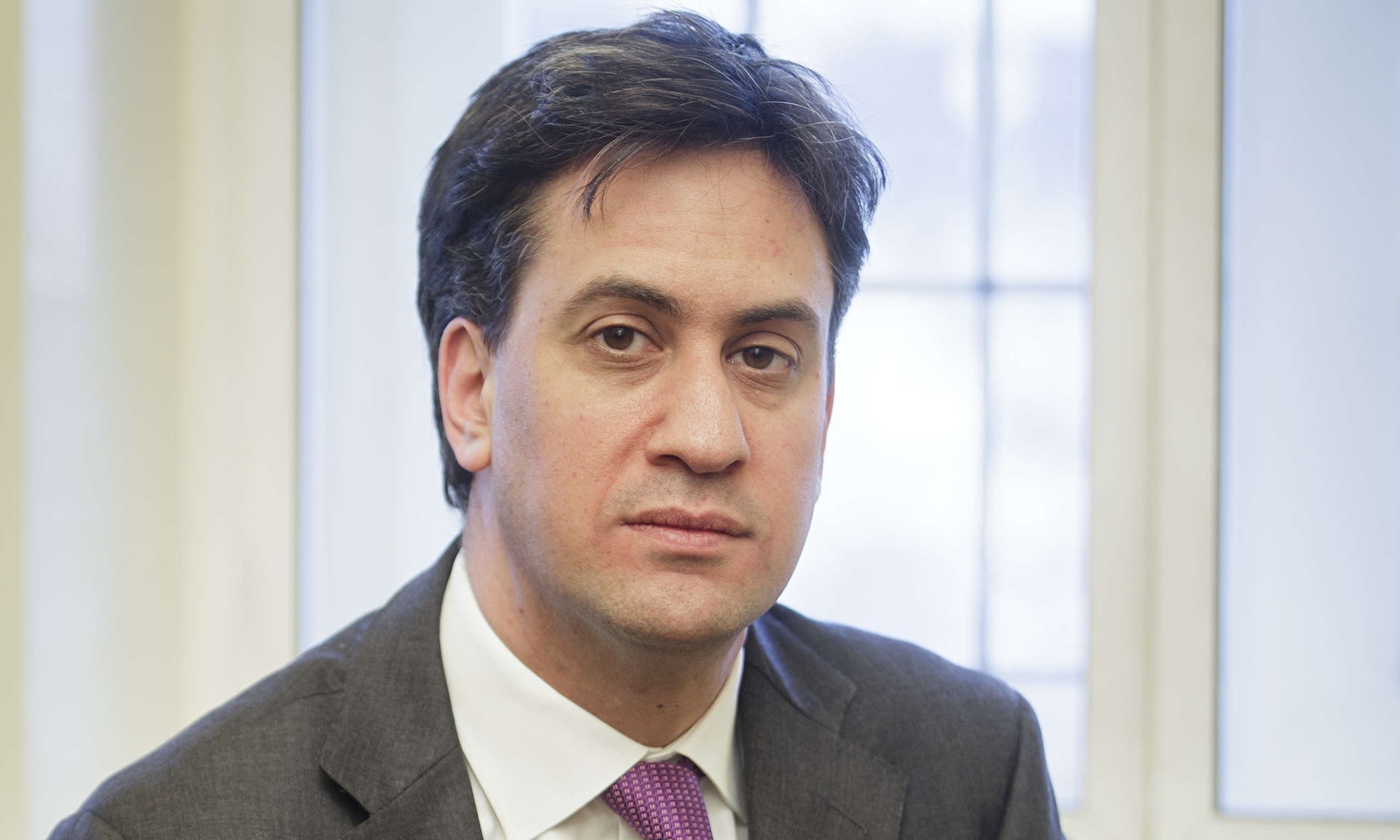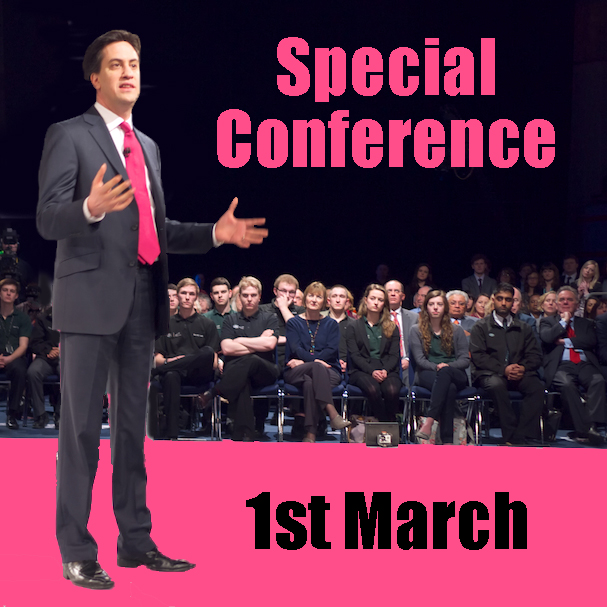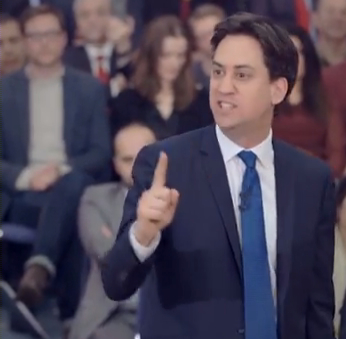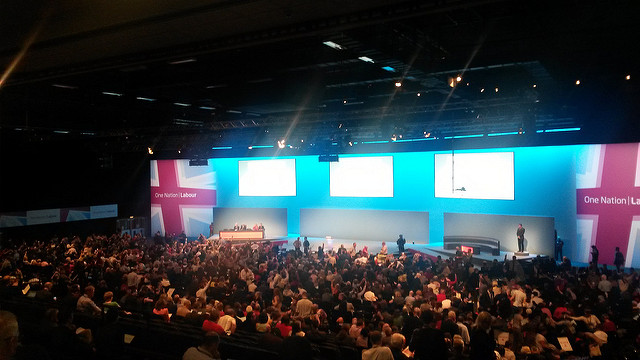Edit
The end of the road from Falkirk
The Labour Party's Collins' report is published, although not to the membership and is passed by the NEC for proposal for consideration by the Special Conference.
- The Collins review, Labour's internal investigation into its rules and democracy which was started in response to the Falkirk affair was leaked earlier this week and commented on by the Blogosphere and then the papers. Then the NEC agreed to forward it to the Special Conference, and the comments continued. In this story, I look at some of the commentators and their contributions. This story is republished here in reverse date order.
- Jon Lansman of Left Futures writes a second article at Left Futures,
 Collins Review: Miliband successfully digs himself out of hole. Labour remains in holeWhen I read the email from Ed Miliband to all party members yesterday afternoon, I thought Left Futures should run a competition with a p...
Collins Review: Miliband successfully digs himself out of hole. Labour remains in holeWhen I read the email from Ed Miliband to all party members yesterday afternoon, I thought Left Futures should run a competition with a p...- and adds to his comments (see below) and wonders if Paul, quoted in Ed Miliband's all members mailing, a man who has decided to join the Labour Party because of the announcement, is real or fantasy. Jon reinforces his points that the the "Supporters" register has failed and suggests it may be deleted in order to make room for the new one, catches the change (to 15%) in the Leader nomination threshold, critiques the spending limit rules, (although its the donation cap which needs to be got right), critiques the London primary rules as he believes they will ensure the exclusion of all London's trade unionists,and unlike others, considers the 'permanent review' a safeguard against party bankruptcy.
- Mark Ferguson at Labour List reports on the NEC meeting,
- Labour NEC backs Miliband's party reform proposals 28-2, and sends them to special conferenceLabour's NEC had a much anticipated meeting to discuss party reforms today, as most of you will already know. And after four amendments t...
- and so does Patrick Wintour in the Guardian
 Ed Miliband wins backing for union funding planA last-minute attempt to get the Labour party to agree to revisit its link to trade unions in five years' time was seen off on Tuesday at...
Ed Miliband wins backing for union funding planA last-minute attempt to get the Labour party to agree to revisit its link to trade unions in five years' time was seen off on Tuesday at...- Jon Lansman of Left Futures offers us his first thoughts,
 Seven reasons to be wary of the Collins proposalsThe so-called debate on Ed Miliband's proposals for party reform are at an end, it seems. The Collins report has been circulated toLabour...
Seven reasons to be wary of the Collins proposalsThe so-called debate on Ed Miliband's proposals for party reform are at an end, it seems. The Collins report has been circulated toLabour...- He argues that opt-in is financially damaging and politically biased and if unsuccessful in recruiting trade unionists to Labour will be used to attack the Union's share of the Conference vote. He points out that the unsuccessful supporter scheme is being empowered by giving them votes in Leadership and London Mayoral candidate elections, comments on the nomination threshold, previous annual processes to confirm leadership positions have not been re-instated and there is no recall process. He attacks the expulsion of Trade Union levy payers from the London Mayor selection, and points out that the evidence that the Party supports a primary in London is sparse, very sparse. He also argues that the principled rules will create a significant administrative burden on supporters, members and the Party. A burden which Falkirk shows, voluntary and part time officials and members may find hard to fulfil. (Many of the documentation failures identified in Falkirk are as likely to be incompetence and not malice.)
- Luke Akehurst comments at Labour list on the proposals,
 Party reform - an omelette without breaking any political eggsThe first thing that needs saying about the proposals on party reform that Ray Collins is tabling at today's NEC meeting is that the Labo...
Party reform - an omelette without breaking any political eggsThe first thing that needs saying about the proposals on party reform that Ray Collins is tabling at today's NEC meeting is that the Labo...- And he says, the Report
"....created a synthesis, a consensus, that isn’t wholly what anyone would have proposed as theoretically perfect, but has kept most people happy and avoided a rupture within the Labour movement between its political and industrial wings. It’s also radical enough to demonstrate that Labour is capable of change and that Ed Miliband is strong enough to lead us out of our comfort zone."
He says more in support of the proposal, but importantly in my mind raises the failure to increase the number of CLP representatives on the NEC. Like me he wants more. To see what he wanted, or more accurately thought right, see his blog article publicising "Labour First" submission, which I link to immediately below. For those for whom he is a right wing bogey man, it's remarkably centerist. - Luke's BlogResponse to Interim Report on Building a One Nation Party 1.THE DEVELOPMENT OF A NEW RELATIONSHIP BETWEEN THE LABOUR PARTY AND INDIVIDUAL...
- Mark's second bite at the cherry,
 5 MORE things you need to know about party reformLast week I wrote 10 things you need to know about party reform, but events are moving relatively fast at the moment, and with Labour's N...
5 MORE things you need to know about party reformLast week I wrote 10 things you need to know about party reform, but events are moving relatively fast at the moment, and with Labour's N...- Mark revisits selections and the MP nomination threshold for the Leadership elections. I commented on this thread, noting that the threshold arithmetically defines the number of candidates, critiquing the proposed London primary and pointing out that the spending cap will be over £120,000 and arguing that while we have left elections for NPF, NEC and Conference delegates to full members, we now have two mandates, one for policy and one for leadership; we have enough experience of the PLP ignoring the party, we seem to be in the process of institutionalising it.
- The Guardian finally gets hold of a copy of the Falkirk report,
 Labour party's Falkirk membership inquiry report - full documentThe 20-page report investigating voting irregularities in the campaign to become Labour's parliamentary candidate in the Scottish constit...
Labour party's Falkirk membership inquiry report - full documentThe 20-page report investigating voting irregularities in the campaign to become Labour's parliamentary candidate in the Scottish constit...- This is not pretty, but the investigation was clearly aimed at finding rule breaking by Karie Murphy's supporters. It would read no better if the detailed fact finding had been equally aimed at the 11 members paid for by her opponents. Some of this is incompetence (missing signatures), some of this is due to the complexity of the rules but this still leaves some of it unexplained. One of the problems is that Falkirk was such a small party, with under 180 members, ( ~.75% of the Labour vote) and recruitment of supporters and voters into membership makes a difference.
- The Guardian also lloks at the Labour Party's Report's headline conclusions and states that there is little evidence for them.
 Labour party's Falkirk membership inquiry report - analysisThe Falkirk report arrives at eight conclusions in its executive summary, leaked to the press and widely interpreted as damning proof of forgery, bullying and "machine politics" by Unite, the union. The subsequent furore resulted in Ed Miliband inviting the police to investigate the claims and the suspension of two members, Stevie Deans and Karie Murphy.
Labour party's Falkirk membership inquiry report - analysisThe Falkirk report arrives at eight conclusions in its executive summary, leaked to the press and widely interpreted as damning proof of forgery, bullying and "machine politics" by Unite, the union. The subsequent furore resulted in Ed Miliband inviting the police to investigate the claims and the suspension of two members, Stevie Deans and Karie Murphy.- The focus on Unite alone is a mistake, Labour's head office should be on the side of the members and the rules.
- Mark breaks the story at Labour List
- 10 things you need to know about Ed Miliband's party reformsEd Miliband has confirmed - in an interview with the Guardian this evening - the details of his proposed party reform plans. These reform...
- .... the story of the contents of the Collins Review. It is proposed that Trade Unionists Opt-In, the Leader is to be elected by individual balloting, the end of the MP's golden vote, a London Primary, spending limits and caps for selections, collective affiliation by Unions remains and their conference votes remain, registered supporters get votes in the Leader and London Mayor elections, the Party will keep a register of Members, Affiliates and Supporters and let candidates for selections use them. I have missed out two thing from Marks list of 10, because I found it hard to summarise the point on financial disarming, and I am not sure if I agree that it's genuinely a platform for a mass party.
- Labour Party Conference at Brighton Sept 2013, voting on the then rule changes
- I finish the story with my blog article about Brockley Ward
- Well RedYesterday evening, Brockley Labour passed the following motion in response to the Labour Party's review on rules and democracy. This revi...
- The article documents the motion carried at Brockley Ward which was then also carried at Lewisham Deptford CLP. This pretty much reflects what I think should happen. The missed opportunity of Refounding Labour should have been taken up and that the Party should have been given back to its members. The reason people I ask who won;t join say is that they have disagreements with policy, and don't believe the leadership will fulfil the promise the Party wants to make.
